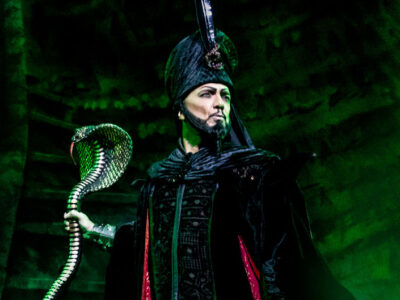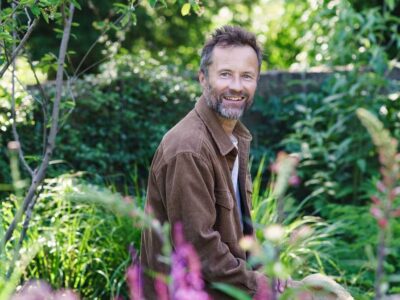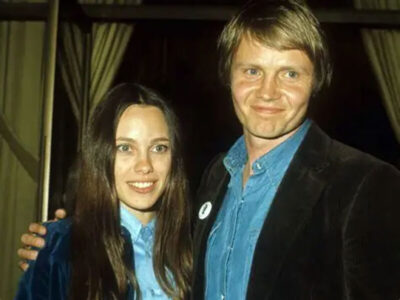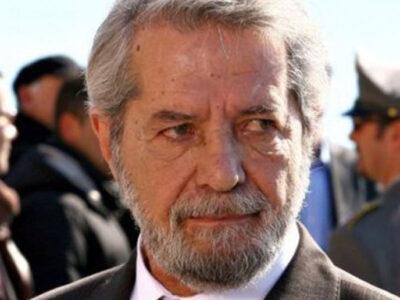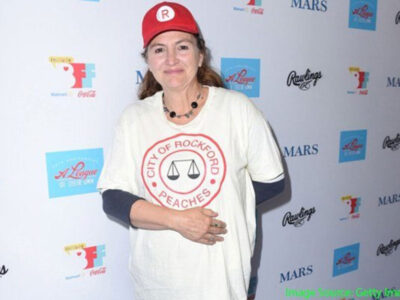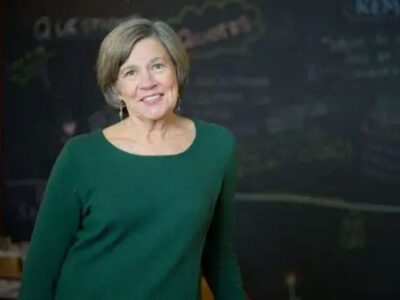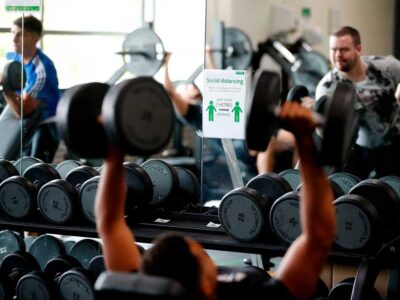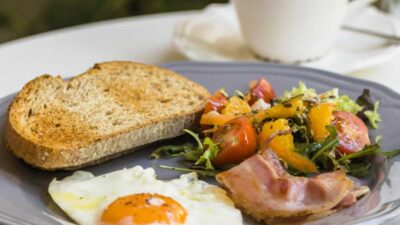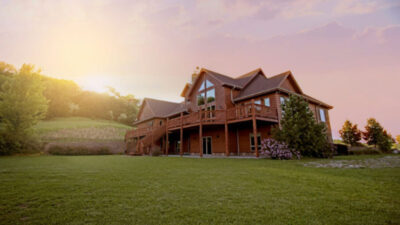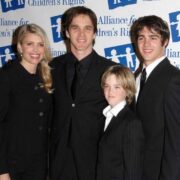The Laurie Hernandez family story isn’t just about one gymnast’s rise to fame. It’s about parents who made tough choices, siblings who cheered from the sidelines, and a Puerto Rican heritage that shaped every decision along the way.
Lauren “Laurie” Hernandez was born on June 9, 2000, in New Brunswick, New Jersey. Growing up in Old Bridge Township as the baby of the family, she had two older siblings and parents who would soon discover their youngest had something special. But here’s the thing about the Hernandez family—they never let that “something special” overshadow what mattered most: raising a well-rounded, grounded young woman.
You know those families where everyone just clicks? That’s the Hernandez household. Puerto Rican traditions mixed with American opportunities, creating the perfect recipe for nurturing not just an Olympic champion, but a genuinely good person.
Laurie Hernandez’s Parents: Anthony and Wanda Hernandez
Wanda Hernandez – The Supportive Mother and Educator
If you’ve ever wondered what makes a great sports mom, look no further than Wanda Hernandez. She’s not the type to scream from the bleachers or live vicariously through her daughter’s achievements. Instead, Wanda represents something much more powerful: steady, unconditional support wrapped in wisdom and faith.
Wanda’s background tells you everything about her character. She spent six years in the Army Reserves and works as an elementary school social worker, helping both young children and troubled teens. Talk about someone who knows how to handle pressure and guide young people through challenges.
But here’s where Wanda really shines as a mother. When Laurie was nine and showing serious gymnastics potential, Wanda made a decision that would change everything. She offered to homeschool her daughter, but with a twist—it wasn’t a permanent commitment. Every September, Laurie had to decide if she wanted to renew her “homeschool contract” for another year.
“She taught me the importance of following rules, finishing what I start, never giving up, leadership skills, teamwork, staying positive, motivated and how to pack the military way when I’m traveling,” Laurie once shared. That’s military precision meeting motherly love right there.
Wanda’s parenting philosophy? Gratitude and perspective. She tells this story about when 12-year-old Laurie placed 21st in a competition and felt devastated. Instead of consoling her with empty praise, Wanda said something brilliant: “You did fantastic. Do you know how many people would love to be No. 21? That’s cause for celebration.” That moment taught Laurie to appreciate her gifts rather than focus on what she lacked.
Anthony Hernandez – The Steady Father Figure
Anthony Hernandez, a court clerk for the New York City Supreme Court in the civil branch, represents the steady, supportive presence that every athlete needs. While Wanda took on the more hands-on role of daily support and education, Anthony provided the emotional stability and quiet encouragement that kept the family grounded.
Both Anthony and Wanda are of Puerto Rican descent, with their parents having emigrated from the island to pursue better opportunities in the United States. This heritage became a source of pride and identity for the entire family, especially as Laurie’s career progressed.
Anthony’s approach to parenting was characterized by being supportive without being intrusive. As Laurie explained to ESPN, “My parents have tried not to intrude. They kind of stayed apart from my gymnastics but are very supportive, and that’s very helpful as a gymnast to not have your parents say, ‘Did you do this today?’ and just be very on top of you.”
The Hernandez Siblings: Marcus and Jelysa
Every successful athlete needs a good support crew, and Laurie hit the jackpot with her older siblings. Marcus and Jelysa Hernandez prove that sibling rivalry doesn’t have to be the norm—sometimes, it’s all about lifting each other up.
Here’s what’s remarkable about the Hernandez family dynamics: while Laurie was getting homeschooled and traveling for gymnastics, Marcus and Jelysa were living the typical high school experience in public school. You might expect some resentment there, right? Not in this family.
Marcus became Laurie’s biggest hype man. When she won those Olympic medals, he didn’t just celebrate quietly—he posted heartfelt tributes on social media that had people reaching for tissues. The bond between these siblings is real, and it shows in moments like when Marcus joked that Laurie’s first stop after returning from Rio would be Wawa for hoagies and ice cream. That’s sibling love right there.
But Jelysa? She takes the award for most thoughtful sister ever. Remember that emotional breakdown Laurie had at a restaurant in March 2016, when the pressure got so intense she couldn’t stop crying? While everyone else was focused on comforting Laurie, Jelysa quietly collected those tear-soaked tissues.
She kept them for months, telling their dad, “If Laurie goes to the Olympics, I’m going to put these tissues in a box and give them back to her.” And she did exactly that. After Laurie’s Olympic triumph, Jelysa presented her with that box, saying, “I knew I was right to keep these. You’re just lucky we didn’t have to use them in the stands.”
That’s not just sibling support—that’s understanding the power of a journey and wanting to remind someone how far they’ve come.
Puerto Rican Heritage and Cultural Identity
The Hernandez family’s Puerto Rican heritage isn’t just a footnote in their story—it’s a central part of their identity and values. Laurie’s grandparents emigrated from Puerto Rico, bringing with them traditions, language, and cultural values that shaped how the family approached life and success.
In their home, Spanish and English flow naturally in conversation. Traditional Puerto Rican foods like arroz con gandules and pernil are family favorites, though Laurie had to limit these treats during her intense training periods. As Wanda explained in an NBC interview, “We are a close-knit Puerto Rican family. Nos gusta el arroz con gandules, pernil, estar en familia, el baile, and our faith.”
Laurie’s success carries special significance in the Latino community. She became the first U.S.-born Latina since 1984 to make the Olympic gymnastics team, joining a select group that includes Tracee Talavera, Annia Hatch, and Kyla Ross. “I’m just proud of my heritage,” Laurie told NBC. “I think it’s amazing that I can just go out there and be myself, and the fact that I’m carrying Puerto Rico on my back a little bit, I think that’s an honor.”
Family Support Through Challenges and Triumphs
The 2014 Injury Crisis
The Hernandez family faced their greatest test in 2014 when Laurie, then 14 years old and newly on the national team, suffered a series of devastating injuries. She fractured her wrist, tore her patellar tendon, dislocated her kneecap, and bruised her MCL—injuries that would sideline her for six months.
With the Rio Olympics approaching and the narrow window of opportunity for gymnasts, the family faced a crossroads. Before Laurie’s knee surgery, Wanda and Anthony had a frank conversation with their daughter. “We said, ‘Laurie, we love you. We are confused about whether to continue with gymnastics because we care about you and want you to be safe and happy. But you are our daughter before anything else. So whatever you want to do we will stand behind you and support you completely,'” Wanda recalled.
The morning after her successful surgery, Wanda found Laurie in the living room doing splits against the wall, her knee still in a brace. Laurie’s determination was clear: “I really love this sport, and I want to continue with it. I need you to support me.” The family gave her exactly that support through her recovery and return to competition.
The Road to Rio Olympics
Even after Laurie’s recovery and return to elite competition, the family never took her Olympic dreams for granted. “At no point did we take for granted that Laurie would get to the Olympics,” Wanda reflected. “In gymnastics, one day you’re doing well, the next day you’re banged up, and the next day you’re so worn you don’t know if you’ll return.”
The emotional toll of elite gymnastics became evident again in March 2016, just months before the Olympic trials. The pressure had built to a breaking point, and Laurie found herself crying uncontrollably at a restaurant, once again questioning whether to continue. The family’s response remained consistent—they would support whatever decision she made.
When Laurie qualified for the Olympic team in July 2016, placing second in the all-around at trials, the family’s years of sacrifice and support had paid off. At the Rio Olympics, Wanda and Anthony watched with tears in their eyes as their daughter helped Team USA win gold and earned an individual silver medal on balance beam.
Values and Life Lessons from the Hernandez Family
The Hernandez family’s approach to raising an Olympic champion centered on values that extended far beyond gymnastics. Faith played a central role in their lives, with Wanda often saying, “My faith carries me through or else you would find me on the floor after Laurie is done.”
Giving back became a family tradition. After appearing on Celebrity Family Feud and winning money, the Hernandez family donated their winnings to St. Jude’s Hospital. Laurie continues this tradition through her work with various charities, including Alzheimer’s research, suicide prevention, and children’s hospitals.
The family emphasized gratitude and perspective. When Laurie became overwhelmed by the pressure of competition, her parents reminded her that their love wasn’t conditional on her athletic success. Before the Olympics, Wanda sat Laurie down and told her, “We wanted her to know that our love for her isn’t based on her being a successful Olympian. We love her unconditionally.”
The Hernandez Family Legacy
Today, the Hernandez family continues to embody the values that carried them through Laurie’s Olympic journey. Their story resonates with families across America, particularly in the Latino community, where representation in elite gymnastics has been limited.
Laurie, now known affectionately as “The Human Emoji” for her expressive personality, has used her platform to inspire young athletes while staying true to her family’s values. She has appeared on shows like American Ninja Warrior Junior and Sesame Street, always maintaining the gracious, giving spirit her family instilled in her.
The family’s influence extends beyond Laurie’s individual success. They have shown that supporting a young athlete requires sacrifice, patience, and the wisdom to let children make their own choices while providing unconditional love and support.
Conclusion
The story of Laurie Hernandez’s family is ultimately a story about the power of unconditional love, cultural pride, and unwavering support. From Wanda’s decision to homeschool her daughter to Anthony’s quiet strength, from Marcus and Jelysa’s sibling support to the family’s Puerto Rican heritage that grounds them all, every element contributed to creating an environment where dreams could flourish.
Their approach—putting the person before the athlete, emphasizing balance and gratitude, and maintaining strong family bonds—offers a blueprint for families navigating the challenging world of elite athletics. The Hernandez family proves that behind every successful athlete is not just talent and hard work, but a foundation of love that makes all the difference.
As Laurie continues her career beyond gymnastics, the values instilled by her family remain her guiding force. The Hernandez family’s legacy extends far beyond Olympic medals—it’s a testament to the enduring power of family, heritage, and unconditional love in shaping not just champions, but remarkable human beings.



